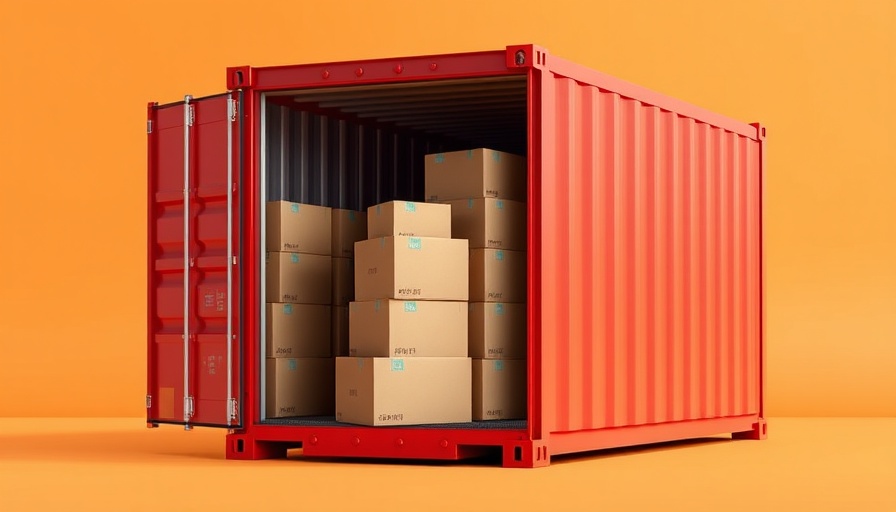
The Impact of Tariffs on Entrepreneurship
President Trump’s recent tariffs serve as a clarion call for entrepreneurs to demonstrate resilience and adaptability. For many, this disruption may be the catalyst necessary to rethink core business operations. Whether you're a startup or a well-established player in your industry, external shocks can often force profound changes that lead to innovation and market differentiation.
Reimagining Your Supply Chain Strategy
The current political climate emphasizes the need for entrepreneurs to critically assess their supply chain. Tariffs on imports, especially from nations like China, are not just statistics; they affect real costs and business viability. As a business owner, consider diversifying your supply sources. If you're dependent on high-risk regions for essential components, reach out to alternative suppliers, including local options. This not only minimizes risk but also enhances your brand appeal by supporting local economies.
Engaging with your current vendors about potential price hikes or delivery delays can yield strategic insights. For instance, suppose you depend heavily on a supplier facing a 54% tariff increase on their imports. It might be prudent to explore partnerships with suppliers from countries less affected by these financial pressures or strengthen your in-house production capabilities. Viewing these conversations as investments in resilience is imperative. Each dialogue can uncover new opportunities for more flexible supply arrangements tailored to meet changing demands.
Assessing Financial Strategies in an Uncertain Environment
Next on the agenda is a comprehensive review of your financial frameworks. Tariffs are designed to elevate costs across numerous sectors. As reported, a 26% increase impacts sectors reliant on imports, with ramifications felt throughout domestic markets—even influencing GDP. Evaluate the potential impact on your profit margins. Thorough scenario analyses with your finance team or trusted advisors can help create safeguards against sudden cost escalations.
This phase is not about panic but arming your business with the tools needed to withstand volatility. Identify where operational inefficiencies exist, and explore cost-cutting measures that conserve financial health while maintaining service and quality. It’s crucial to be transparent with clients should your pricing model shift. Provide context by explaining that these adjustments stem from external economic shifts, illustrating your dedication to a fair and honest business practice.
Building Agility to Respond to Market Changes
The essence of success lies in business agility. With the unpredictability of market conditions, robust frameworks are essential to respond effectively to abrupt changes, including tariffs. Develop agile strategies that allow for rapid adaptation to shifting circumstances.
When developing these practices, consider consulting with other stakeholders within your industry or your business network. Collaboration can often yield compelling outcomes, whether through joint ventures or shared insight on overcoming common challenges. Tariff discussions and their implications can be more easily navigated when infused with collective wisdom.
Conclusion: Embracing Change as an Opportunity
As you reengineer your operations in light of market shifts, remember that adaptability and responsiveness are hallmarks of successful businesses. Trump's tariffs might feel daunting, but they also offer a unique opportunity to innovate and strengthen your foundation. Embracing change, forming strategic partnerships, and investing in your supply chain and finances are not just defensive maneuvers; they can be transformative pathways to future success.
 Add Row
Add Row  Add
Add 




 Add Row
Add Row  Add
Add 

Write A Comment